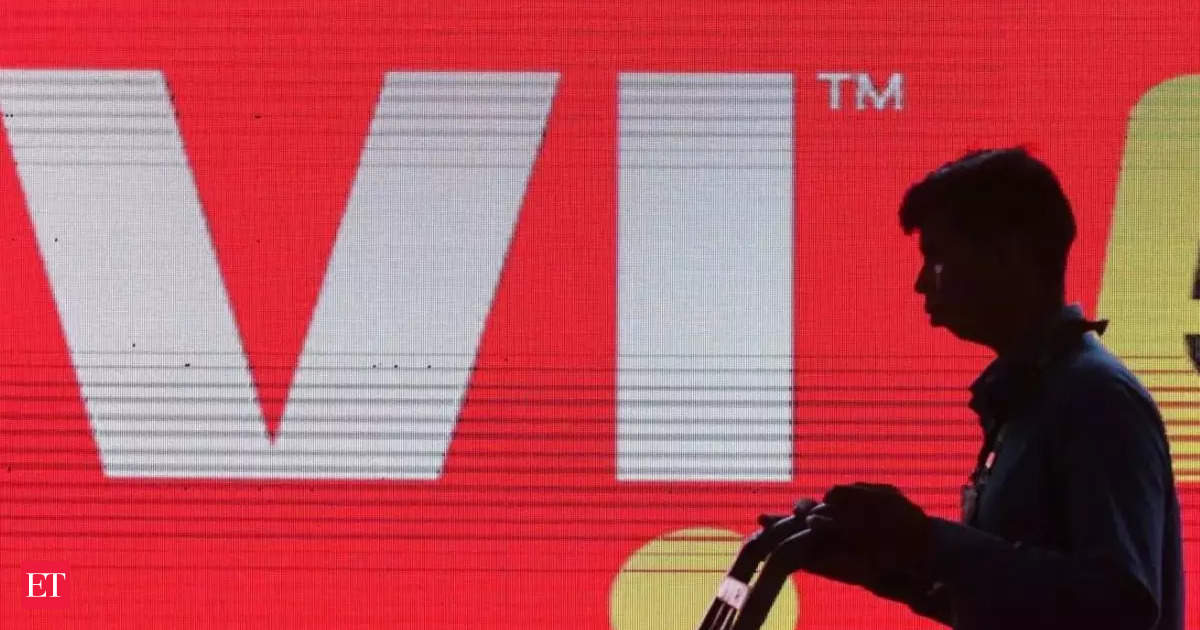Govt Converts VI Debt to Equity: 48% Stake - A New Chapter for Vodafone Idea?
Editor’s Note: The Indian government has today announced the conversion of Vodafone Idea's debt into equity, resulting in a significant 48% stake. This article delves into the implications of this move.
Why This Matters: Restructuring India's Telecom Landscape
The Indian government's decision to convert ₹16,133 crore of Vodafone Idea's (Vi) dues into equity is a landmark event in the nation's telecom sector. This move significantly alters the power dynamics within the industry, injecting much-needed capital into a struggling player and potentially impacting competition, pricing, and overall network infrastructure. The repercussions extend beyond Vi itself, influencing investor confidence and the future trajectory of the Indian telecom market. This article will explore the key aspects of this conversion, its potential benefits and drawbacks, and the broader implications for consumers and the industry.
Key Takeaways
| Point | Description |
|---|---|
| Government Stake | The government now holds a 48% stake in Vodafone Idea. |
| Debt Conversion Amount | ₹16,133 crore in dues converted to equity. |
| Impact on Vi | Potential for improved financial stability and investment in network upgrades. |
| Market Implications | Reshaping the competitive landscape, impacting pricing and service offerings. |
| Consumer Impact | Potential for improved network quality and service reliability. |
Govt Converts VI Debt to Equity: A Detailed Analysis
This unprecedented move by the government aims to stabilize Vi, a company that has been struggling financially for years. The massive debt burden has hampered its ability to invest in its network and compete effectively against rivals Jio and Airtel. The conversion of debt to equity provides a lifeline, allowing Vi to potentially restructure its operations, invest in 5G infrastructure, and improve its overall service offerings.
Key Aspects of the Debt-to-Equity Conversion
- Government Ownership: The 48% stake gives the government significant influence over Vi's strategic direction.
- Financial Relief: The conversion significantly reduces Vi's debt burden, improving its balance sheet.
- Future Investments: This injection of capital enables Vi to invest in network upgrades and 5G rollout.
- Competitive Dynamics: The move alters the competitive landscape, potentially leading to changes in pricing and market share.
Detailed Analysis: Impacts and Challenges
The long-term success of this initiative depends on several factors. Vi will need to demonstrate a clear path to profitability, efficient management, and a robust strategy for attracting and retaining customers. The government's role will also be crucial, balancing its ownership stake with maintaining a competitive market. Challenges remain, including intense competition, the high cost of 5G deployment, and the need for sustained customer acquisition.
Interactive Elements: Examining the Government's Role
The Government's Strategic Intervention
The government's decision is rooted in a desire to maintain a competitive telecom landscape. A collapse of Vi could lead to a duopoly, potentially impacting consumer choice and pricing. By providing financial support, the government aims to prevent this scenario, ensuring the continued viability of three major telecom operators.
Facets of Government Intervention: Roles, Risks & Mitigations
- Role: Preventing a market monopoly, supporting a significant employer, and bolstering digital infrastructure.
- Examples: Similar debt-to-equity conversions in other countries.
- Risks: Potential for inefficient resource allocation, concerns about government influence, and the risk of further losses.
- Mitigations: Transparent governance, performance targets, and independent audits.
- Impacts: Impacts on competition, consumer prices, and the overall health of the telecom sector.
The government’s intervention needs ongoing monitoring and evaluation to gauge its effectiveness and address potential risks. A clear strategy for managing its stake and ensuring efficient operations at Vi is essential.
People Also Ask (NLP-Friendly Answers)
Q1: What is the debt-to-equity conversion?
A: It's a process where Vodafone Idea's debt owed to the government is converted into equity shares, giving the government a stake in the company.
Q2: Why is this conversion important?
A: It saves Vi from potential bankruptcy, ensures continued competition in the telecom sector, and prevents job losses.
Q3: How can this benefit me as a consumer?
A: It may lead to better network quality, improved services, and potentially more competitive pricing.
Q4: What are the challenges with this conversion?
A: Potential government overreach, the need for Vi to improve its operational efficiency, and the ongoing competitive pressure.
Q5: How will the government manage its stake in Vi?
A: The government will likely appoint representatives to the board to oversee operations and ensure accountability.
Practical Tips for Understanding the Telecom Market
- Stay informed: Follow industry news to understand market dynamics.
- Compare plans: Analyze different telecom plans to find the best value.
- Understand your needs: Choose a plan that fits your data and calling requirements.
- Check network coverage: Ensure good network coverage in your area.
- Read reviews: Check online reviews before switching providers.
- Negotiate: Don't hesitate to negotiate better deals with your provider.
- Monitor your usage: Keep track of your data and call usage to avoid overages.
- Explore alternatives: Be aware of alternatives like VoIP and Wi-Fi calling.
Summary: The government's conversion of Vodafone Idea's debt to equity is a significant development with far-reaching implications for the Indian telecom sector. While it provides a lifeline to Vi, its long-term success depends on efficient management, strategic planning, and a healthy competitive environment.
Closing Message: This unprecedented move highlights the government's commitment to maintaining a vibrant telecom sector. What are your thoughts on the long-term impact of this decision on consumers and the market?
Call to Action: Share this article with your network and subscribe to our newsletter for updates on the evolving Indian telecom landscape.

